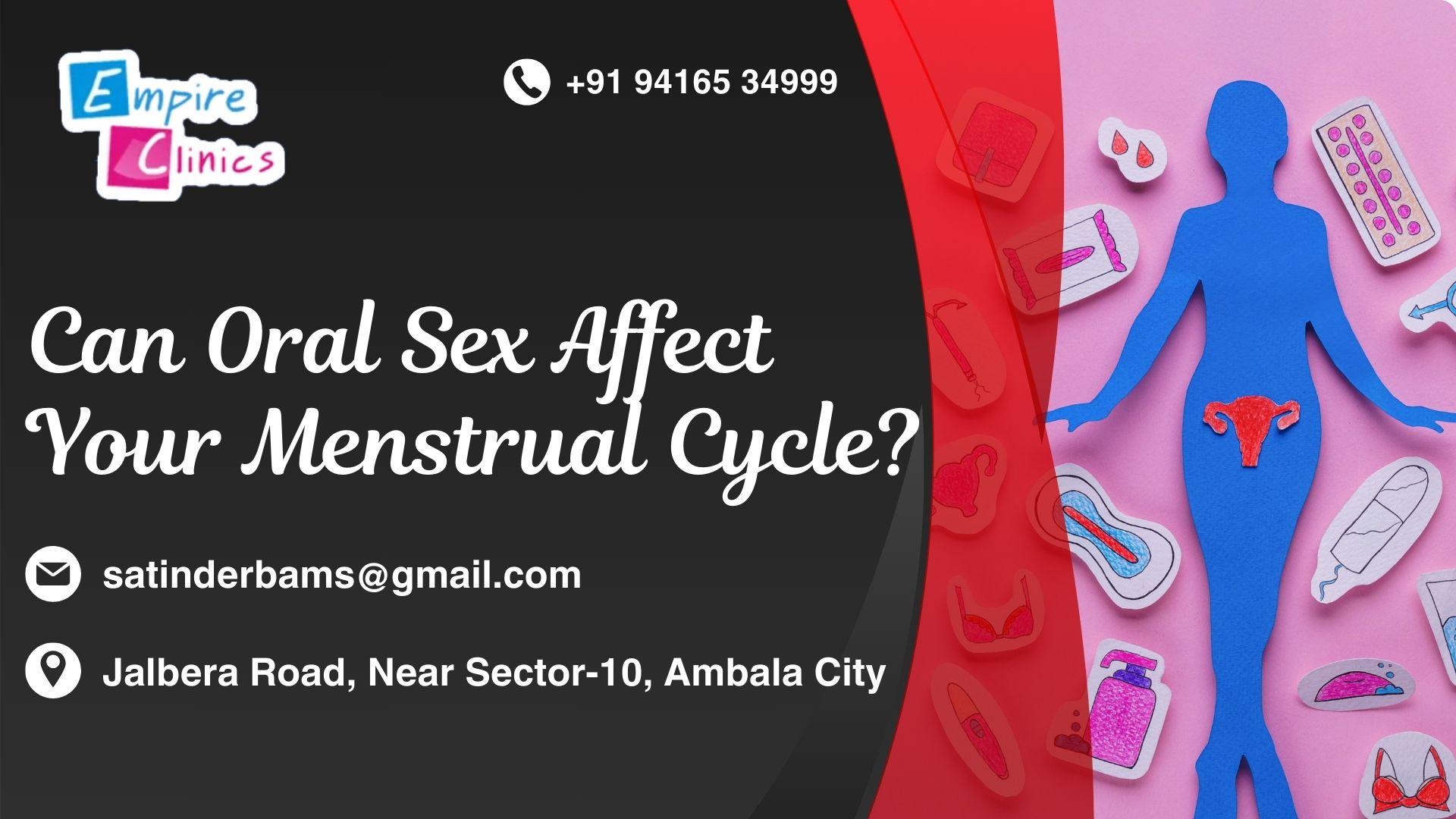Oral sex, defined as sexual activity involving the stimulation of the genitalia using the mouth, does not affect the menstrual cycle or cause a period to be late. The menstrual cycle is primarily regulated by a complex interplay of hormones produced by the hypothalamus, pituitary gland, and ovaries. Various factors can influence the timing of a menstrual period, but oral sex is not one of them. Here’s an in-depth look at the factors that can delay a period and why oral sex is not a contributing factor.
Table of Contents
Understanding the Menstrual Cycle
The menstrual cycle is typically around 28 days long, although it can range from 21 to 35 days in adults. It is divided into several phases: the follicular phase, ovulation, and the luteal phase. Hormones such as estrogen and progesterone play key roles in regulating these phases. Disruptions in this hormonal balance can lead to changes in the cycle, including delayed periods.
Factors That Can Cause a Late Period
1. Stress:
- Impact on Hormones: Stress can significantly impact the hypothalamus, the brain region responsible for regulating hormones that control the menstrual cycle. High stress levels can lead to a delayed or missed period.
- Coping Mechanisms: Practicing stress-reducing techniques such as meditation, yoga, and regular exercise can help maintain hormonal balance.
2. Changes in Weight:
- Weight Loss or Gain: Significant weight changes, whether loss or gain, can disrupt the balance of hormones such as estrogen and progesterone, leading to irregular periods.
- Body Fat: A certain amount of body fat is necessary for regular menstrual cycles. Extreme diets or eating disorders can lead to hormonal imbalances and amenorrhea (absence of menstruation).
3. Exercise:
- Intense Physical Activity: High levels of physical activity, especially in athletes, can cause changes in the menstrual cycle due to decreased estrogen levels.
- Balance: It’s essential to balance exercise with adequate nutrition and rest to maintain a healthy menstrual cycle.
4. Hormonal Imbalances:
- Polycystic Ovary Syndrome (PCOS): PCOS is a common condition that causes hormonal imbalances and can lead to irregular or missed periods.
- Thyroid Disorders: Both hyperthyroidism and hypothyroidism can affect menstrual regularity.
5. Medications:
- Contraceptives: Hormonal contraceptives, such as birth control pills, can cause changes in menstrual cycles, sometimes leading to lighter or skipped periods.
- Other Medications: Certain medications, including those for mental health conditions, can also impact menstrual cycles.
6. Illness:
- Acute or Chronic Illnesses: Temporary illnesses, like the flu, or chronic conditions, such as diabetes, can disrupt menstrual regularity.
- Recovery: Once the body recovers from an illness, the menstrual cycle often returns to normal.
7. Lifestyle Changes:
- Routine Disruptions: Changes in routine, such as traveling across time zones or significant lifestyle changes, can temporarily affect the menstrual cycle.
- Diet and Sleep: A healthy diet and regular sleep schedule support hormonal balance and regular menstrual cycles.
8. Pregnancy:
- Primary Cause: Pregnancy is the most common cause of a missed period. If there is any possibility of pregnancy, taking a pregnancy test is recommended.
Oral Sex and Menstrual Cycles
Oral sex does not involve hormonal changes or physical activities that could disrupt the menstrual cycle. The menstrual cycle is controlled internally by the endocrine system, and external sexual activities, including oral sex, do not influence it. Therefore, if a period is late, the cause lies elsewhere, and not in the practice of oral sex.
Have any questions about oral sex contact us now
While oral sex does not affect menstrual cycles, various other factors can cause a period to be late. Understanding these factors can help identify the reason for a delayed period and alleviate concerns. If menstrual irregularities persist, consulting with a healthcare provider is advisable for personalized insights and guidance. Maintaining a balanced lifestyle, managing stress, and monitoring any significant changes in health or routine can support regular menstrual cycles and overall well-being.







